Budget Basics
-
Why a Budget Needs to be Created
Most private, state, local, or federal grants require reporting procedures that demonstrate funds are only used for allowed expenditures and are expended within the grant period. To facilitate this requirement, the funds should be placed in a separate budget from regular district funds; this is also known as a fully financed budget.
Comingling is the mixing or blending of funds so that expenditures cannot be traced to a particular grant, project, or activity. There are also laws prohibiting the comingling of federal and local funds.
SPPS is bound by district policy, state laws, and federal regulations, and must maintain current and accurate records of all outside sources of revenue. To ensure adequate records and oversight, the following requirements must be followed:
- Submit all grant awards and agreements to the grants management coordinator (GMC)
- Only the board of education as the authority to accept grants
- No expenditures are permitted without a detailed budget
How to Create a Budget
In SPPS, there are multiple ways to create a budget. Grants must go through the GMC, who will review the grant application materials including the award documents, reporting requirements and what purchases are allowed with grant funds. From those the GMC analyzes the expenditures required, determines the department and account codes, and allocates the appropriate amount to each code.
The GMC will forward the budget and award materials to the grant’s accountant who determines the fund, program, finance and class codes for the rest of the budget and sends the complete budget code back to the GMC.
Finally, when all the documents are approved, the budget established, and contracts are signed, grant managers will receive an email with copies of everything they need to run their grant, including the budget code.
Indirect Costs
Indirect costs are also referred to as administrative overhead. Some grants do not permit indirect costs to be paid by grant funds, and the district must cover these costs itself. For grants that include indirect costs, a rate allowable under the grant program will be used. This rate varies each year and is calculated by the Minnesota Department of Education.
To figure the indirect costs, total all costs and subtract any individual contract expenses over $25,000 and any capitalized equipment costs. This product is the modified total direct costs (MTDC on some forms). Multiply the MTDC by the indirect rate to get the indirect costs. Finally, to get total costs, add the total expenses (including those excluded to calculate MTDC) and the indirect costs.
Budget Monitoring
Anyone hired to manage a budget (either explicitly, or as an assigned duty) is responsible for properly allocating funds, using those funds, monitoring others’ use of the funds, reporting on the use of funds, and planning for the future of the work’s funding. As with most facets of grant management, developing a plan and following it is beneficial.
The biggest surprises usually come from payroll. When a budget is developed without specific staff in mind, average salaries are used to calculate wages and benefits. When staff are hired and placed in the salary schedule, it is highly probable that their wages and benefits are lower or higher than planned.
All non-personnel expenses are individually approved by the grant manager, so there shouldn’t be any surprises.
As part of monitoring the budget, the grant manager should run a monthly Guideline Report and Activity Report to compare the planned budget to actual expenses. Any deviation of more than 10% will require action, usually a call to the GMC to figure out why there is a deviation and to make an adjustment.
Carryover Revenue
Some budgets will use budget balances from the prior year; this is particularly common in projects that last more than one year. The actual amount of money available for use in the new year won't be determined until August. Anyone in this situation should be prepared to revise their budgets at that time.
Applicable Regulations
Compliance with 2 CFR 200.302




